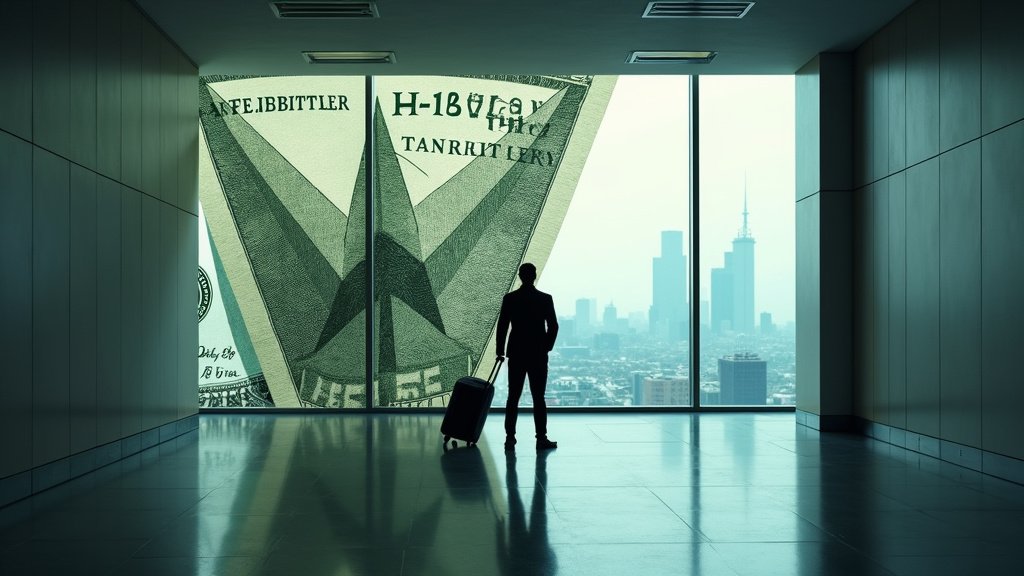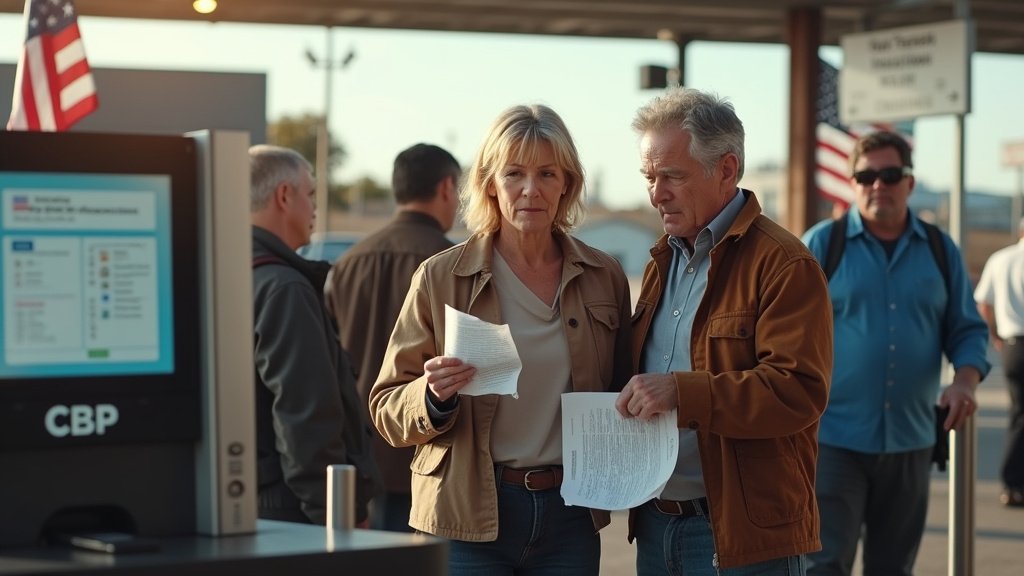In a move that has sent significant ripples through the U.S. business landscape, President Trump issued a Presidential Proclamation on September 19, 2025, imposing a substantial new fee and restrictions on the H-1B visa program. Effective September 21, 2025, the proclamation mandates a $100,000 payment for new H-1B petitions filed for foreign workers seeking entry into the United States, creating an immediate “sticker shock” for employers reliant on global talent. This significant development is part of a broader initiative aimed at reforming the immigration system, prioritizing high-skilled and high-paid foreign professionals, and safeguarding domestic labor markets, making it a trending news item across the nation.
Core of the Proclamation: A $100,000 Entry Requirement
The “Restriction on Entry of Certain Nonimmigrant Workers” proclamation, effective September 21, 2025, introduces a significant financial hurdle for companies looking to hire foreign nationals under the H-1B specialty occupation visa. For any new H-1B petitions filed on or after this date for individuals outside the U.S., employers must accompany the petition with a $100,000 supplemental fee. Without this payment, H-1B visa petitions will be denied, and the workers will be barred from entering the U.S. This measure, initially slated to last for 12 months unless extended, aims to curb perceived abuses of the H-1B program and deter companies from hiring foreign workers at wages that allegedly undercut American labor.
Crucial Clarifications: Who is Affected and Who is Not
In the immediate aftermath of the proclamation, considerable confusion arose regarding its scope. However, subsequent guidance from the Department of Homeland Security (DHS), U.S. Citizenship & Immigration Services (USCIS), and U.S. Customs and Border Protection (CBP), alongside White House statements, has provided critical clarity.
Crucially, the $100,000 fee does not apply to:
* Existing H-1B Employees: Individuals already in the U.S. in H-1B status are unaffected.
* Previously Filed Petitions: Any H-1B petitions filed on or before September 20, 2025, are exempt from the new fee.
* Approved Petitions Abroad: Individuals abroad who hold already approved H-1B petitions before September 21, 2025, are not subject to the new fee upon seeking entry.
* Renewals and Extensions: Petitions for extensions of stay, amendments, or changes of employer for individuals already in H-1B status within the U.S. are not impacted.
* Current Visa Holders Traveling: The proclamation does not prevent current H-1B visa holders from traveling in and out of the United States.
The fee applies exclusively to new H-1B petitions submitted for workers located outside the U.S. after the September 21st deadline.
Rationale: Protecting U.S. Workers and Curbing Program Abuse
The administration has articulated that the proclamation is designed to protect American workers by discouraging companies from using the H-1B program to drive down wages or displace U.S. employees. Critics have long argued that the H-1B program, which has an annual cap and is often filled through a lottery system, can be exploited by companies, particularly in the tech sector, to hire foreign nationals at lower salaries than their U.S. counterparts. The stated goal is to ensure that the H-1B visa program is utilized only by the “best of the best”.
Far-Reaching Implications for Employers and Talent
The $100,000 fee represents a substantial increase in hiring costs, potentially making the H-1B visa category prohibitively expensive for many U.S. employers when sponsoring new workers from abroad. Industries heavily reliant on H-1B professionals, such as IT outsourcing, are expected to bear the brunt of this change. This could lead to reduced opportunities for international professionals seeking to work in the U.S. and may prompt some companies to increase offshoring or hire talent outside the United States, potentially creating labor gaps and impacting workforce diversity. Early market reactions saw declines in the stock prices of major IT service firms.
Broader Reforms on the Horizon
Beyond the immediate fee, the proclamation directs further significant reforms to the H-1B system. These include initiating rulemaking to raise prevailing wage levels, thereby increasing the minimum salaries employers must offer H-1B workers. Additionally, government agencies are tasked with prioritizing higher-paid, highly skilled foreign workers in the H-1B lottery process, signaling a potential shift toward a more merit-based selection system. The Department of State is also directed to issue guidance to prevent the misuse of B visas by H-1B beneficiaries with upcoming start dates.
Legal Challenges and Future Uncertainty
Immigration lawyers and industry stakeholders have raised concerns that the proclamation may overstep executive authority by effectively amending immigration law without congressional approval, leading to anticipated legal challenges. The effectiveness and longevity of the proclamation, which is set to last 12 months but could be extended, remain subject to judicial review and further governmental clarification. This evolving situation impacts not only U.S. companies but also the broader discussion around immigration policy at the nation’s border and across the U.S.
Conclusion: A New Era for H-1B Hiring
The new $100,000 fee and associated restrictions mark a dramatic shift in the H-1B visa landscape. While clarifications have eased immediate panic for existing visa holders, the significant cost for new hires from abroad introduces considerable uncertainty for employers and international talent. This landmark announcement is a key piece of recent U.S. immigration news, and its long-term ramifications will likely unfold as legal battles commence and further policy directives emerge.






